If you are considering swapping engines in your car, odds are that you are interested in increasing the performance, speed and power of your vehicle. However, an engine swap can be an expensive and time-consuming process, which means that you should do as much research up front as possible so that you can feel confident in your decision.
Which engine to choose comes down to more than just performance; it will also depend on the type of vehicle you are working with, your long-term goals and even the accessibility of the engine and its parts. Give some thought to the following tips when determining which engine is right for you.
Understanding Engine Types to Choose From
Perhaps the best place to start when picking the right engine for your car is understanding the types of engines you can choose from. V6 and V8 engines are some of the most common, offering high power due to their number of cylinders (six and eight, respectively). They tend to be versatile, but because they come with so many cylinders, they can also be heavy.
While a V6 can work in both front- and rear-wheel drive vehicles, V8s should be left only for all- or rear-wheel options. Remember, too, that these engines have many moving parts, which can make them not only more expensive but also more complex to repair and work with. However, for power and adaptability, they are top of the line.
More commonly, you may encounter either inline-four or inline-six engines (sometimes called a straight six). While the four is one of the cheapest you will find and caps out at much less power than other options, its affordability and compact size make it versatile for almost any need. The straight six is notorious as one of the smoothest running engines around, but it is large and more vertically oriented, so it may not fit into the type of car you are working on.
Take some time to consider your ultimate goals: speed, power, environmental impact, gas mileage, weight, size, complexity and more. This will guide you toward which engine is best for you—or at least which ones are certain not to fit your needs. You can progress from there.
Installation Concerns with the Car of Your Choice
As touched on briefly above, not all engines will fit into all types of vehicles. Some engines are tall, wide or particularly heavy, making them suited to specific types of cars. Be sure that you understand how to mount an engine within your vehicle of choice so that you can examine whether it will fit. Many engine bays require new plates and other parts or modifications in order to swap an engine in.
In addition, you will likely need to change or completely remove and redo other parts of the vehicle that you may not have considered, such as the AC system and exhaust, based on your engine selection. Thus, choosing the type of engine you would like to work with as early in the process as possible will lead to the best results.
Budgetary Considerations to Keep in Mind
Naturally, you will be interested in the overall cost of the engine as part of your decision-making process. Features such as more moving parts or more cylinders will typically drive the price of an engine up (which is why a V8 is more expensive than a V6). However, if you have a number in mind for your engine swap spending, be sure to consider the whole picture.
An engine that is slightly more expensive than you planned for, but that can be installed with little modification, may end up being cheaper in the long run than a more affordable engine that requires heavy body and part modification or replacement in order to install. If you only consider the cost of the engine itself, you may pay more than you anticipated by the time that the project is done.
The Expert Auto Body and Engine Swap Pros Can Help
Whether you are considering an engine swap in your vehicle for the first time or you need help navigating the process, choosing an engine or installing it, it is wise to establish a relationship of trust with an experienced engine swap and auto body restoration shop that you can contact whenever you run into trouble.
The pros at Robs Customs & Restorations would be happy to help you determine which type of engine is right for you and get you set up and prepared for all the additional parts and labor required to make your project a success. Reach out to schedule an appointment to discuss your goals and options.
